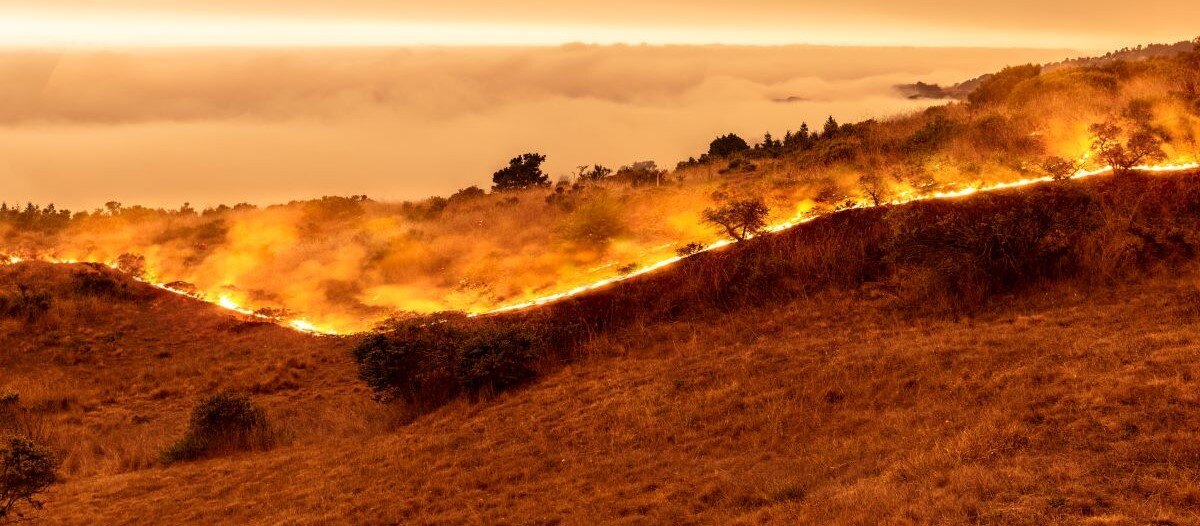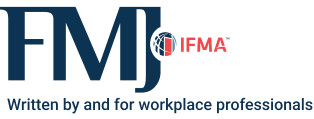Re:Work in the Age of the Re:20s
The new project of the IFMA Foundation’s Knowledge Management Committee

The Roaring Twenties – a decade of progress and prosperity, cultural and social change, technological advancement, mass consumerism. A century later, the 2020s could also be described as roaring, but the bellow has a very different sound from that of the Jazz Age. The post-war roar of the 1920s was heard in clinking champagne glasses, talking movies, vacuum cleaners and radios. By contrast, the post-pandemic roar of our age is heard in the rush of receding floodwaters and crack of collapsing glaciers, felt in the scorch of wildfires and swelter of record heat waves, seen in loss of life and livelihood.
A recent report in McKinsey Quarterly on the Transition to Net Zero states that the problems and forecast market in the building sector include:
- construction represents 40 percent of global CO2 emissions and 25 percent of GHG emissions as a whole;
- within buildings, heating and cooling produces 6 percent of global emissions;
- the market for sustainable/green construction, materials, equipment and operations could grow 38 percent by 2030;
- achieving a net zero world by 2050 may be the largest reallocation of capital in history, leading to an increase in spending of US$3.5 trillion more per year than today;
- “In pursuit of net zero opportunities will define tomorrow's outcomes and differentiate tomorrow's leaders.”
On a global scale, the situation is desperate – climate change, pollution, hunger, inequality, irresponsible consumption, biodiversity loss; but the same resilience, ingenuity and optimism that drove cathartic, revitalizing transformation 100 years ago still exist, and today’s roars are being countered by two letters: R-E. A powerful prefix, “re” holds a significant place in all of the ways we, as a people, can – and must – heal our planet: rebuilding, repositioning, rethinking, remaking, renovating, rehabilitating, rebirthing, redesigning, renewing, repurposing, reusing and regenerating.
Last October, a photo of a machine crushing construction waste to be reused elsewhere appeared on the front page of The New York Times’ Business section aside the headline, “How to Recycle a 14-Story Office Tower.” The article focused on innovative, regenerative solutions coming from a group of Dutch architects, engineers, contractors and designers who “believe in designing not just for the life of a building, but for its afterlife, too.” With construction and demolition contributing to half of all waste in the Netherlands, professionals in the industries responsible for what gets built are finding ways to reconstruct what they construct.
Taking up more real estate than articles on the geopolitical ferment, crime or the global economy, this Times’ feature story not only demonstrated heightened awareness of sustainable practices as instrumental to a progressive pathway to better life on earth, but also emphasized the crucial role of built environment industries in the circular economy – an answer to the call to action that Breda University academics asked for in their recent book on the transformation that sustainability should be having on the FM profession (see the book review on in FMJ’s online extended edition).
Serving as the watchdog over what happens globally to ensure the mandate of the IFMA Foundation remains in step with the most relevant issues affecting the FM profession, the foundation’s Knowledge Management Committee (KMC) is firmly planted in the Re:World. Since 2014, the KMC:
- partnered with leading academics (Cornell, UCL, Sir Frank Duffy) to hold summits in the U.S. and U.K. addressing the workplace’s new level of importance to organizations;
- following the summits, invited leading experts to share their ideas, which resulted in a series of three “Work on the Move” books;
- created how-to guides on critical topics like business continuity, the pandemic and evidenced-based scientific research on human behavior and the built environment;
- co-created the Workplace Evolutionaries (WE) Community to keep ideas moving among professionals, which led to WE:Hubs popping up around the world;
- designed the Global Workforce Initiative (GWI) after recognizing there were not enough trained FMs to fill the jobs vacated by retiring FMs;
- initiated exploring the U.N.’s Sustainable Development Goals (SDGs), expanded the scholarship category for sustainability (thanks to Eric Teicholtz’s generosity) and included sustainability in GWI training programs;
- created the first virtual summit on FM and sustainability with speakers from the NYU Stern School of Business and University College London, as well as other expert speakers new to the IFMA community;
- is represented on the new IFMA Research Advisory Committee (RAC) and contributed to its first white paper, “Seeking Higher Ground: Navigating the FM Industry’s Transformation,” co-written by IFMA Director of Research Jeffrey Saunders, Hanze University Professor Mark Mobach and KMC Chair Nancy Sanquist.
The next venture for the KMC is to use the U.N. SDGs, aligned with ESG (environmental, social and governance), as a framework for the new Net Positive Re:Work Project, which is aligned with IFMA’s strategic initiative to lead the global transformation of lifelong FM professional development, and IFMA’s Vision to “lead the future of the built environment to make the world a better place.” That better place can be net positive.
The source of the project’s title is from the book, “Net Positive: How Courageous Companies Thrive by Giving More Than They Take” (Harvard Business Review Press, 2021), written by corporate sustainability expert Andrew Winston and Paul Polman, who is the former CEO of Unilever, one of the first multinationals to embrace sustainability as a company strategy. Polman co-founded IMAGINE, working to accelerate action by business to achieve the U.N. SDGs, which he helped to develop. He has been described by the Financial Times as “a standout CEO of the last decade … [his] vision of net positive is a business that improves well-being for everyone it impacts and at all scales – every product, every operation, every region and country, and for every stakeholder including employees, suppliers, communities, customers and even future generations and the planet itself.”
In “Net Positive,” Polman and Winston ask readers to join the movement at netpositive.world/book/. KMC is doing just that with the Net Positive Re:Work Project, and working with other organizations in the process. One way is through the IFMA Foundation’s special consultative status with the UN Economic and Social Council as a nongovernmental organization (NGO), granted by the United Nations last August. KMC is currently investigating which U.N. agencies they should be working with, to not only gain more knowledge of what is happening around the world, but to share their own stories of how particular SDGs are being impacted by GWI programs.
Warren G. Harding’s campaign slogan during the 1920 U.S. presidential election was “Return to normalcy.” On the heels of the First World War and the influenza pandemic, a return to ordinary life seemed a desirable goal; however, the new ways of behaving, thinking, dressing, dancing and creating that defined the Roaring Twenties were anything but normal. We, too, have found ourselves vacillating between going back to the way things were, acclimating to the way things are now or designing a brand-new future for ourselves. The “new normal” that is defining our decade has opened the door to invention, progress, purpose – answering the U.N.’s SDGs’ call for action to “promote prosperity while protecting the planet.”

Nancy Sanquist, IFMA Fellow, is a professional involved in the built environment for the last few decades. She is the Past Chair of the IFMA Foundation, with which she has worked for the last six years. She is a co-founder of the Global Workforce Initiative (GWI) and the Workplace Evolutionaries, and is the author of many articles and co-editor of books on FM/CRE, technology, architecture, urban planning and maintenance including the award-winning book series titled “Work on the Move (1&2).” She is working on a new book on “Reimagining Place in the 21st Century.”
Read more on Leadership & Strategy , Networking and FM Solutions
Explore All FMJ Topics








